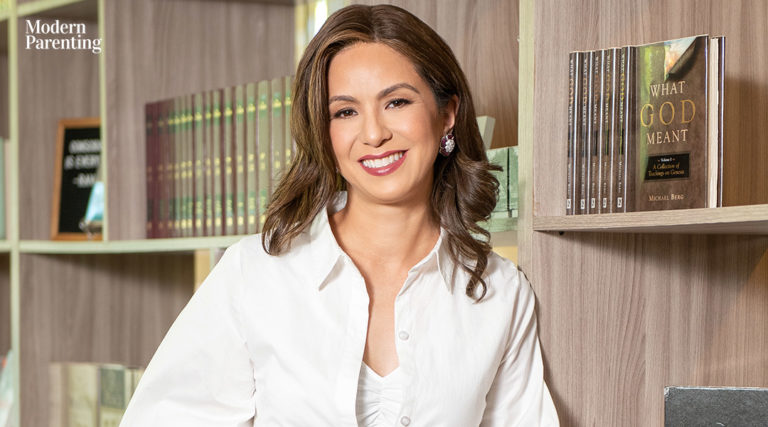Spotlight
Sarah Weston: On Bringing Out Light Energy, Setting Boundaries, and Embracing Her Name
In discovering a path that brought more light and goodness into her life, Sarah Weston hopes to help others do the same.
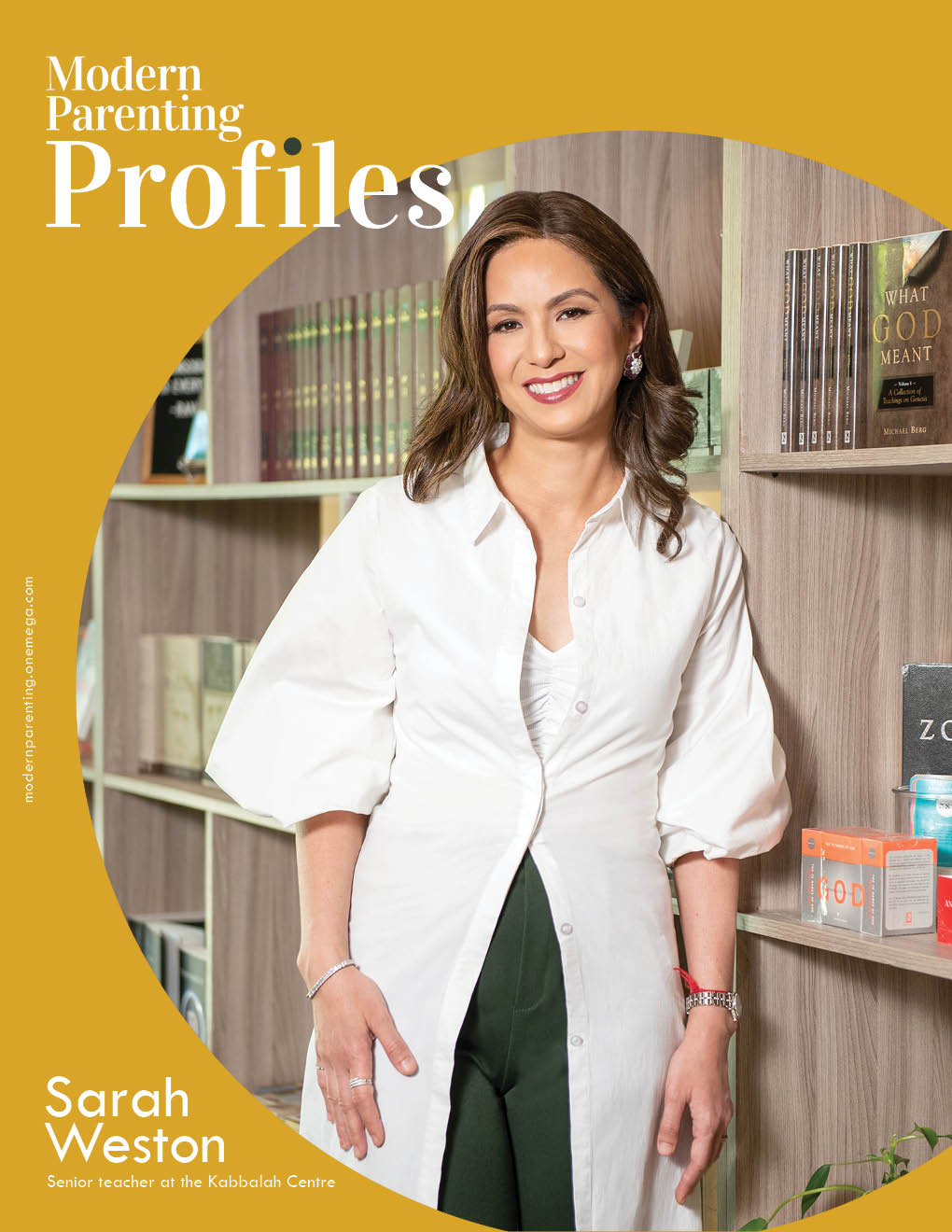
For many of us, fulfillment comes in the form of wealth and success. And Sarah Weston, formerly known as Nikki Lopez, had both. She worked on Wall Street and followed a path that many people in her University went. However, despite having it all, it seemed like something was missing. Until she discovered Kabbalah and felt like her soul came home.
“I started 18 years ago and the first thing they told me was, ‘Don’t believe anything we tell you. And don’t believe anything that you read. You’re going to have to test it out yourself and find out what’s true for you,'” she recalls. “That resonated with me because I really believe that everyone has their individual path. And that there’s no coercion in spirituality. You can never force something upon someone else. You present the tools and the wisdom. And it’s up to each individual to figure out which path is right for them.”
Sarah Weston is now based in London with her husband Marcus and their three children. From once working in finance, she is now a teacher at The Kabbalah Centre.
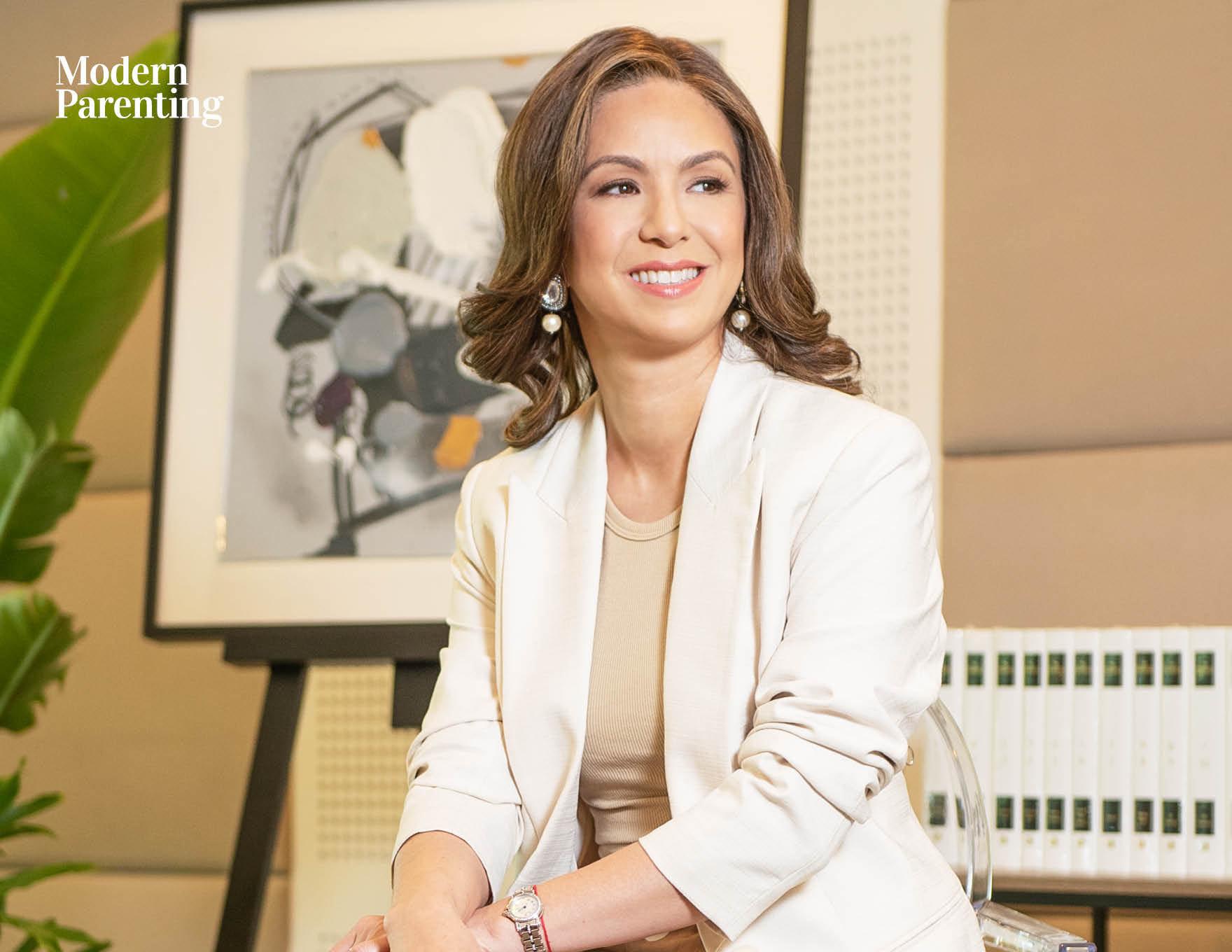
A Universal Blueprint for the Human Soul
For those who aren’t familiar with Kabbalah, Sarah Weston describes it as spiritual wisdom. “It’s not religious. There are people from different types of faiths and backgrounds that come to study. And it is about connecting to that energy of the creator—whether it’s God or Allah. Everyone has different names for God. And there’s a universal blueprint for the human soul. There’s universal energy and laws that apply to everyone—regardless of what their religion is,” she explains.
“It is teachings, tools, and understandings about how energy flows to the universe and how we can connect and bring more of that light energy—that essence of goodness—into our lives in many different ways.”
As a student of Rav and Karen Berg, one of the most important lessons Sarah has learned is that the energy you put out into the world comes back to you. “So put out goodness, kindness, and love. Because if you want to receive something, you have to share it.”
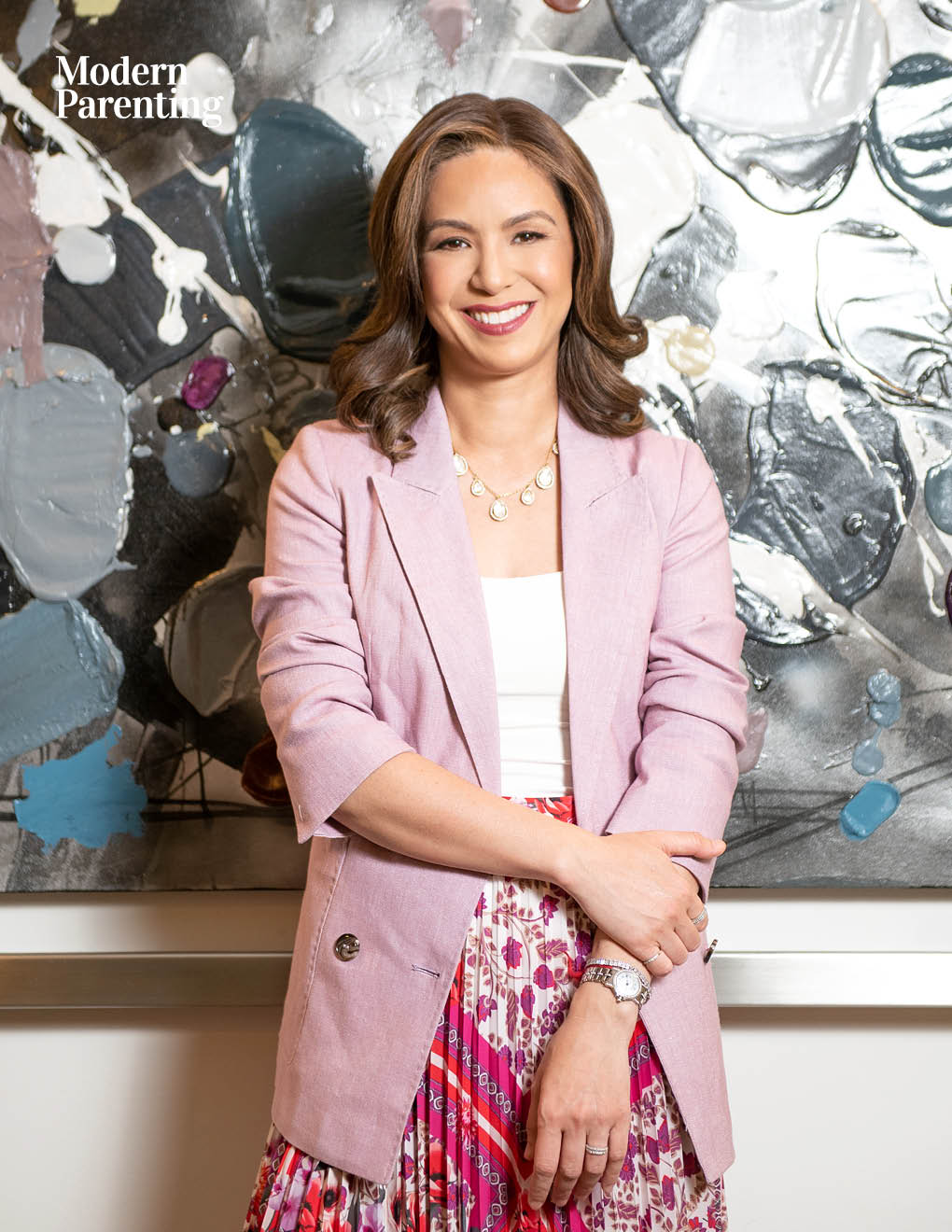
“I realized the way I was looking at my life was that I was a taker. I want this, I want that, I want other people to fulfill me, I want other people to change, I want this other person to treat me this way. And then I’ll be happy. I wasn’t looking at what I was giving; I was looking at life and what people were giving me. And I was very unhappy. But when you shift your mindset and you see where you can create and bring light and love; that it’s not about what you’re getting, it’s about what you’re giving—you’re actually opening up yourself to receive so much more.”
Why Kabbalah Resonates with Filipino Families
While Filipinos are traditionally Catholic and conservative, Kabbalah resonates with them. This is because of our naturally giving and caring culture.
“People always look after their families. And whenever they go on a trip, there’s even a word for it, right? Pasalubong! You go on a trip and you bring something back for your family—chocolates, toys, and other gifts. When I left the Philippines, I realized that other cultures don’t even have a word for it!”
“Filipinos have such a giving nature. People always look after each other. They take care of each other. One of the students who came to visit the Philippines shared that they can’t enter a Filipino house without being offered ten kinds of food!” Sarah remembers with a laugh. “It’s really in line with the nature of what the Kabbalah Centre is. And what the center teaches is how we give and share. This is how we bring light to the world. It brings more meaning into what we’re already doing. Many times, people tend to give from resentment or obligations. But when you give from the point of, ‘No, this is what I’m giving not because I need to but because this brings light into my soul. This brings light energy back to me,’ it changes things.”
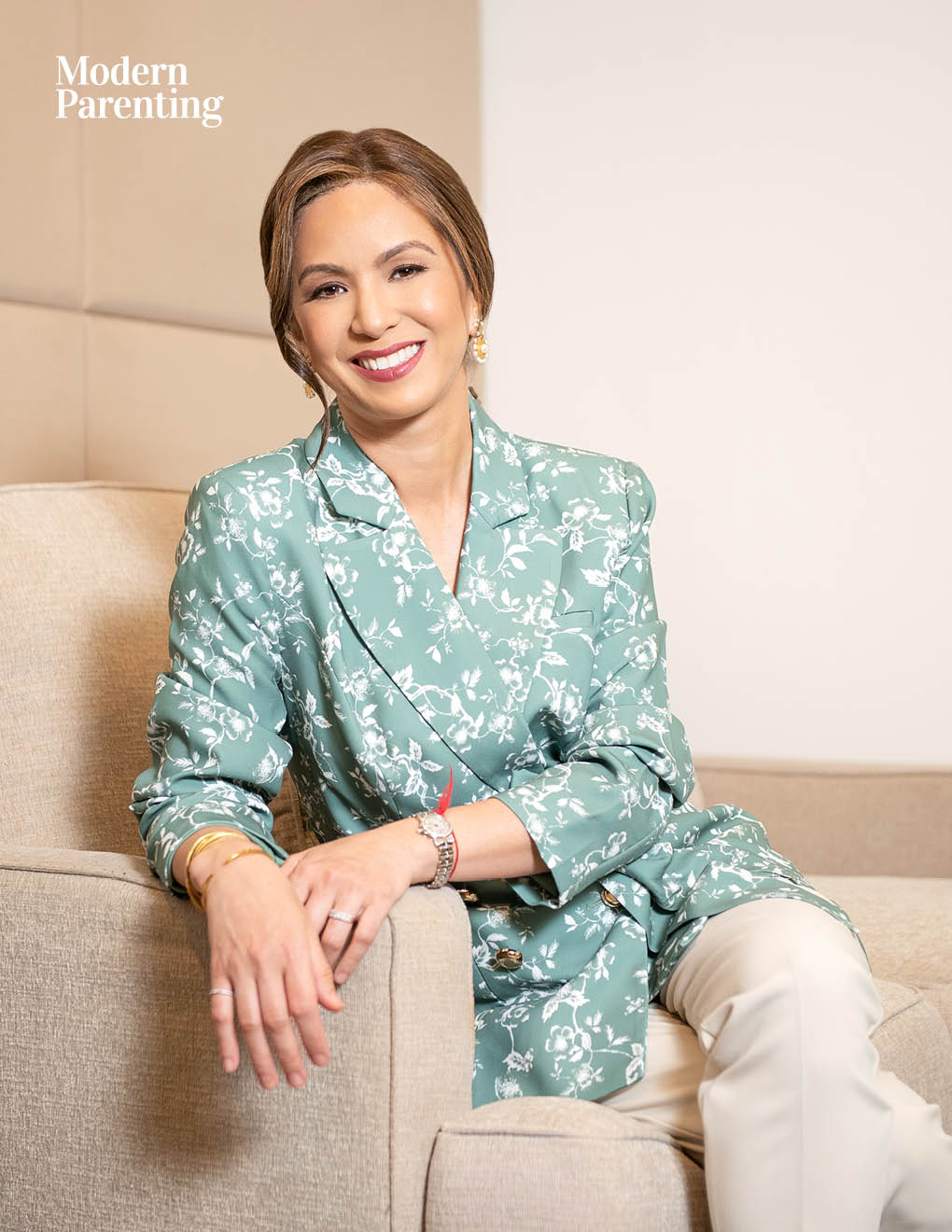
The Influence of Kabbalah on Sarah Weston’s Parenting Style
Sarah admits that she was raised in a strict household. Despite her family’s wealth and abundance, she had to earn everything. “If I wanted an increase in my allowance, if I wanted anything, I had to get good grades. Most kids would go to summer camp or have their summer off. But since I was 12 years old, I had to work every summer,” she laughs. “I wasn’t given any allowance—I had to go work at one of the family companies. I worked in every company! Those were my memories of summer. You don’t get a free ride. You have to earn everything.”
“In Kabbalah, there’s also this concept that whatever we want in our life, we have to earn it. We have to make effort in order for it to have meaning to us. And so we teach our kids that they can have whatever they want, but how are they going to earn it? Because it’s good for children to build desire. It’s good for them to desire something. But if you give them everything for free, you’ll end up with spoiled children. So, it’s raising them with the idea that you can have anything but you have to work for it.”
This is evident in how Sarah Weston is raising her 9-year-old daughter. “She went out and talked to one of the Kabbalah students. She was like, ‘You know, I want this thing. But my mom said she’ll only give it to me if I pay for half of it. Can I come work for you?’ And it was in this fancy flower shop in London. It costs me more to get her there,” she shakes her head while laughing.
“But she’s earning a little bit of money every week. And she’s very proud and happy to buy her own things! One time we went out, my mom was visiting and she was like, ‘I’ll buy it for you,’ and my daughter was like, ‘No, I really want to buy it with my own money.’ Because it’s meaningful for her. When we put effort into something, it means more to us.”
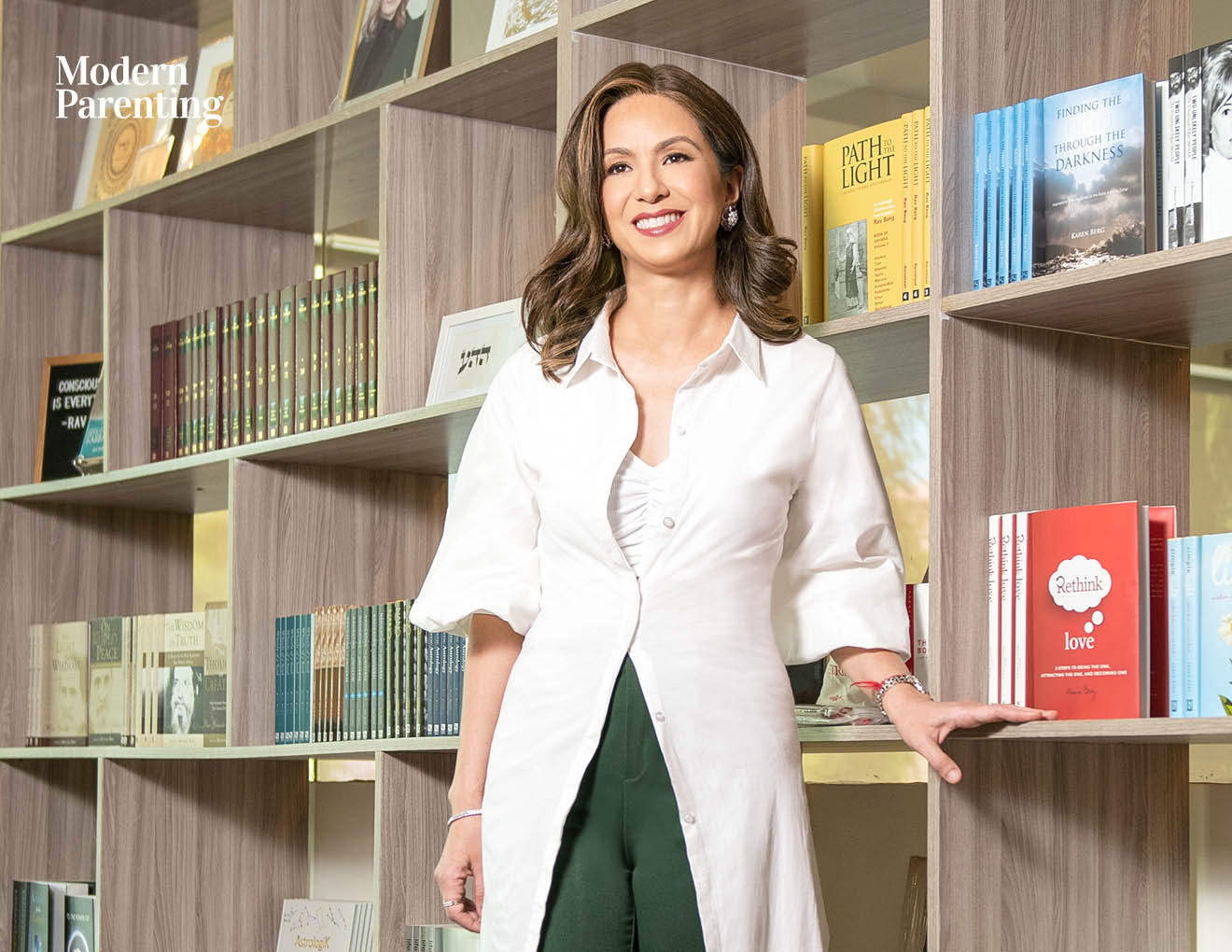
“We teach our children that in order for them to generate meaning in their life, they have to put effort and do it. They start to value things more. They appreciate things more. It’s very easy to give a child something because you want them to be quiet or behave or you want them to settle down. And it’s more difficult but it’s always better in the long run to teach them how to calm themselves down and earn something. Because in life, we all go through chaos. Sometimes, things won’t always go our way. So if things don’t always go our way, how are we going to solve it? What are the different ways to calm ourselves down?”
Sarah Weston: “Parents should have realistic expectations.”
Sarah emphasizes the importance of parents having realistic expectations of their children. “We start to teach them the responsibility of managing and regulating their own emotions. As parents, it is really important not to have unrealistic expectations. One of the biggest frustrations in parenting is when we expect our children to do things or behave in a certain way. We expect them to never get angry and to always be behaved. It’s completely unrealistic because we get angry, we get upset, and we lose our temper. How can we expect a child, who’s having a big reaction, to hold all of that energy in their 5-year-old body? In that 10-year-old body? When your 34-year-old or 50-year-old self can’t?”
“It’s okay to get angry and upset. The question is how are we going to deal with it? Children don’t always remember what we tell them. They remember how we behave. Sometimes, I get angry and upset and so I model what I do to calm myself down. I take a deep breath, I count to ten, and I start to teach them consciousness about how to self-regulate. And not to have the expectation that they’re going to be right all the time.”
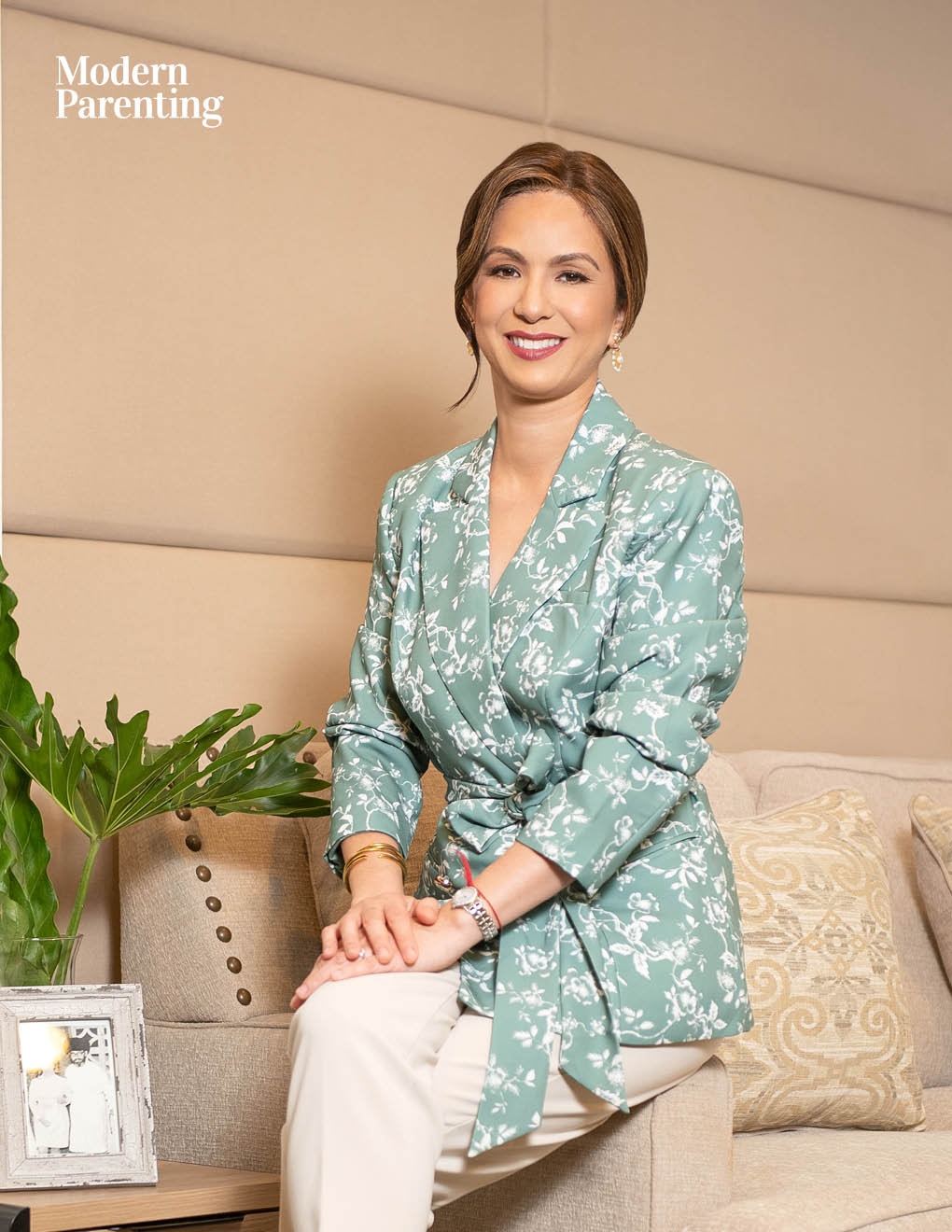
“When we expect children to do something that they’re not capable of doing, they start to think themselves as bad or they lose their confidence. And it’s more important—especially in children—to build their confidence. If they have an outburst, they shouldn’t feel bad that they had an outburst. If they weren’t able to control themselves at that moment, that doesn’t make them a bad child.”
The Importance of Setting Boundaries
Sarah Weston admits that her parenting style is tough. “I’m a strict parent. I really believe in enforcing boundaries. Because we have to teach our children what will bring light into their lives and what won’t. Children need to have healthy boundaries and they need to feel free within those boundaries. One of the things we learn and teach in Kabbalah is that the boundaries need to be clear and consistent. If the boundaries are clear and consistent, then it’s much easier for a child to behave better. When things are confusing, they’re going to act out. When things are clear, it’s much easier to be our best selves—this is the same for children.”
At home, Sarah and Marcus always allow their children to express themselves. “Their anger, fears, and frustrations—there’s no feeling that’s wrong. How they act on the feeling is what might be appropriate or inappropriate. But none of the feelings they feel are wrong. We help the child process those feelings—about why they might feel scared, happy, or sad. At the end of the day, when we’re putting the kids to bed, this is the best time to have a heart-to-heart talk—when they’re calm. We ask them what they felt and what were they happy about. Because I want them to focus on the good things. And I want them to feel safe.”
“We also pray every night—we pray to bring light to the world and for things we want for ourselves. Sometimes, my daughter says things like, ‘I wish something didn’t happen,’ and we say, ‘Well, instead of wishing that hadn’t happened or wishing that that person who did something wasn’t there, why don’t you wish that you get along with them? Why don’t you wish that you can handle it much better next time?’ We help them frame their desires instead of wishing something to go away.”
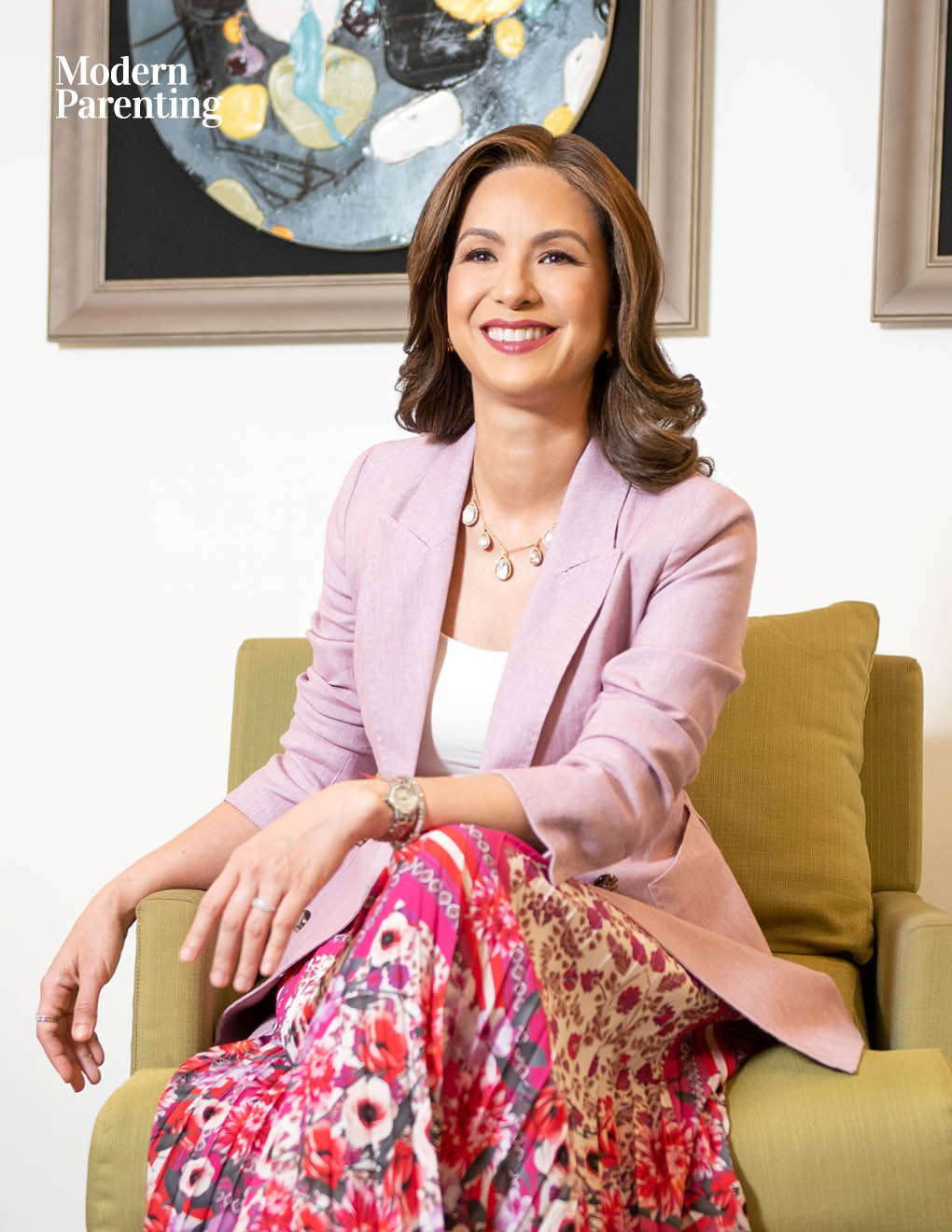
“As adults, our problems never really do go away,” Sarah quips. “So we wish to have a desire to get along with people and to handle situations better—because challenges don’t really disappear. But we do grow our ability on how to handle them and we can teach that to our children as well.”
“We always want to look at ourselves and examine if we’re coming from the right place. We need to provide a good example to the children—because that’s what they remember.”
What’s In A Name
Instead of taking over or helping manage any of the family businesses, Sarah Weston chose a different path that brought more light to her life. Admittedly, Kabbalah has also improved her relationship with her parents.
“I came from a place of blaming and being angry and resentful—even though my parents had given me a lot. I wanted more instead of appreciating what I had. And it really taught me to appreciate them and everything they’ve done. It taught me not to expect things from them. If I wanted something, why should I expect it from them? I need to earn it myself. I need to go get it myself. It helped me change from being a spoiled brat to being someone who appreciates what I have in life.”
“It’s never about what we have—it’s about how we’re connected to the things that are in our life. And I see people who have a lot more, but are not connected to it. They don’t appreciate it and they feel like they have nothing. On the other hand, I see people who have less and they’re so happy. So it’s never about the quantity of what someone has. There’s light within everything that we have. And we connect to that light—that’s what brings us joy, happiness, and contentment.”
“Your soul’s work is connected to your name. Obviously, when I got married, I changed my name. But I also changed my name because the nature of my work changed. The nature of what I was doing in the world changed. The name Sarah is connected to Sarah the matriarch, who was one of the spiritual teachers. She was the wife of Abraham and was a very elevated spiritual soul. She was always someone that I felt connected to when I read the stories about her. There are many people following this path who also change their names—because it changes the vibrations of their energy. When I felt my energy shift because I was no longer the person I used to be, it was a very natural transition.”
A ‘Family Matters’ Class
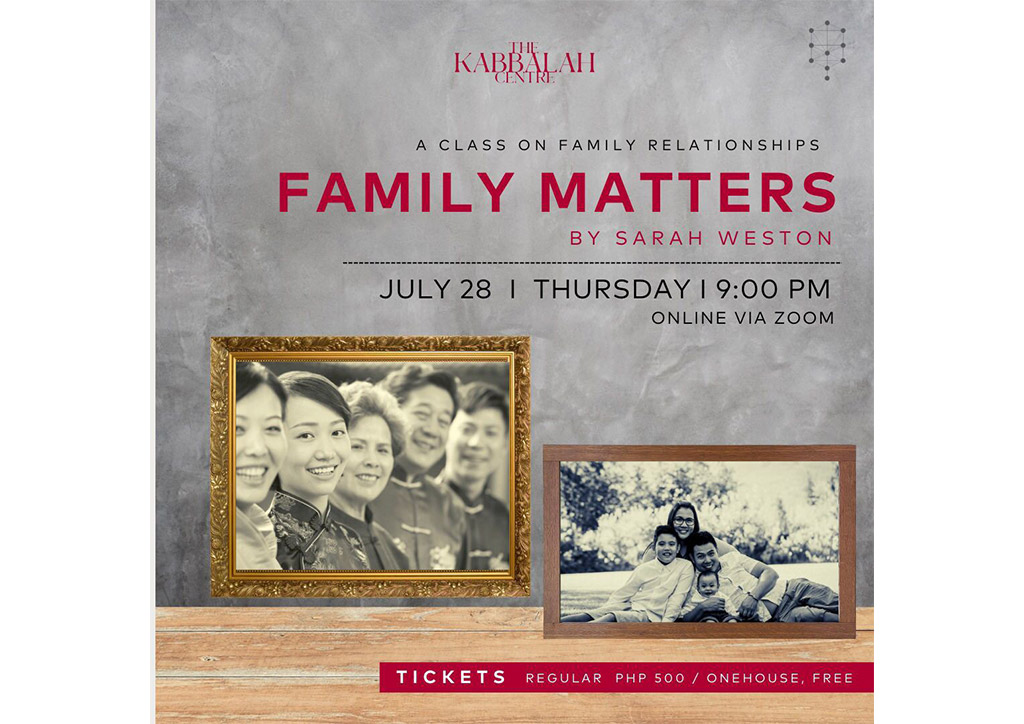
Those interested in attending a Kabbalah class might want to sign up for Family Matters happening on July 28, 2022, at 9 in the evening via Zoom. It highlights how relationships with parents, siblings, and the rest of the family influence current behaviors—to help one move forward with greater clarity and a sense of peace.
Photography KIERAN PUNAY
Art Direction MARC YELLOW
Makeup KARMELA JABLA
Hairstyling ARJAY ZURITA
Styling ROSHNI MIRPURI and SIYA DARYANI for THE CLOSET COUTURE
Shoot Coordination MJ ALMERO
Sittings Editor MARGA MEDRANO TUPAZ
Shot on location at THE KABBALAH CENTRE PHILIPPINES
Special thanks to BIANCA JULIANO, CALVIN CORTES and LEAH VICKI MARTINOFF
Liked this story? Find more on Modern Parenting:
Filipino Tradition and Gentle Parenting According to a Child Development Coach
How Utang ng Loob Made Filipino Families Toxic
Defining What’s Toxic in Filipino Families and How to Change That
